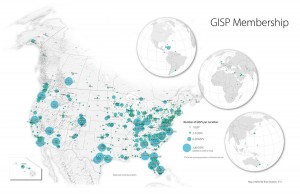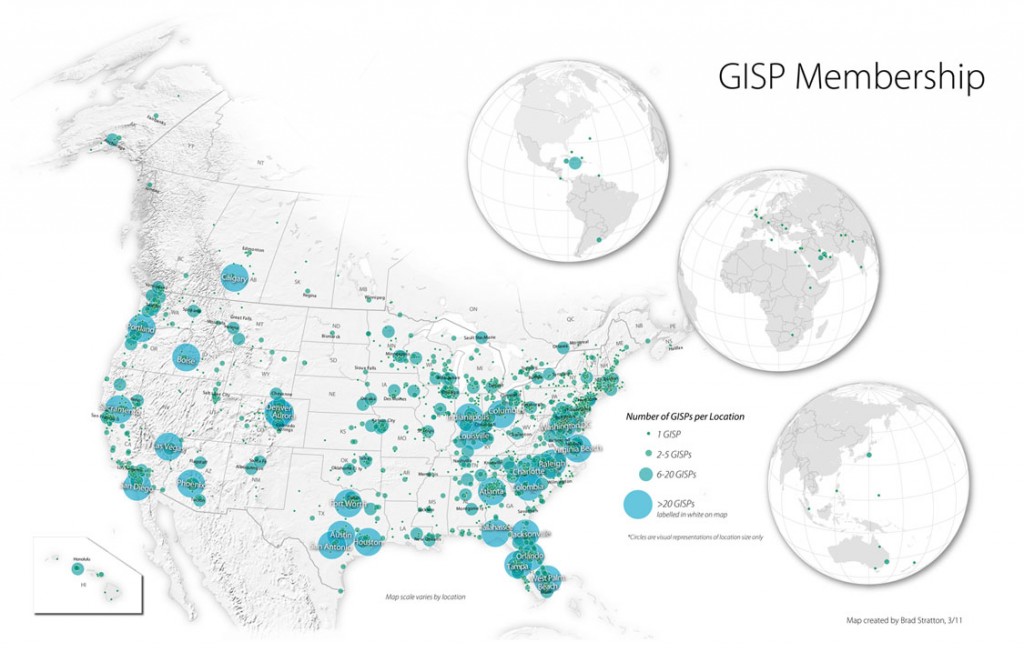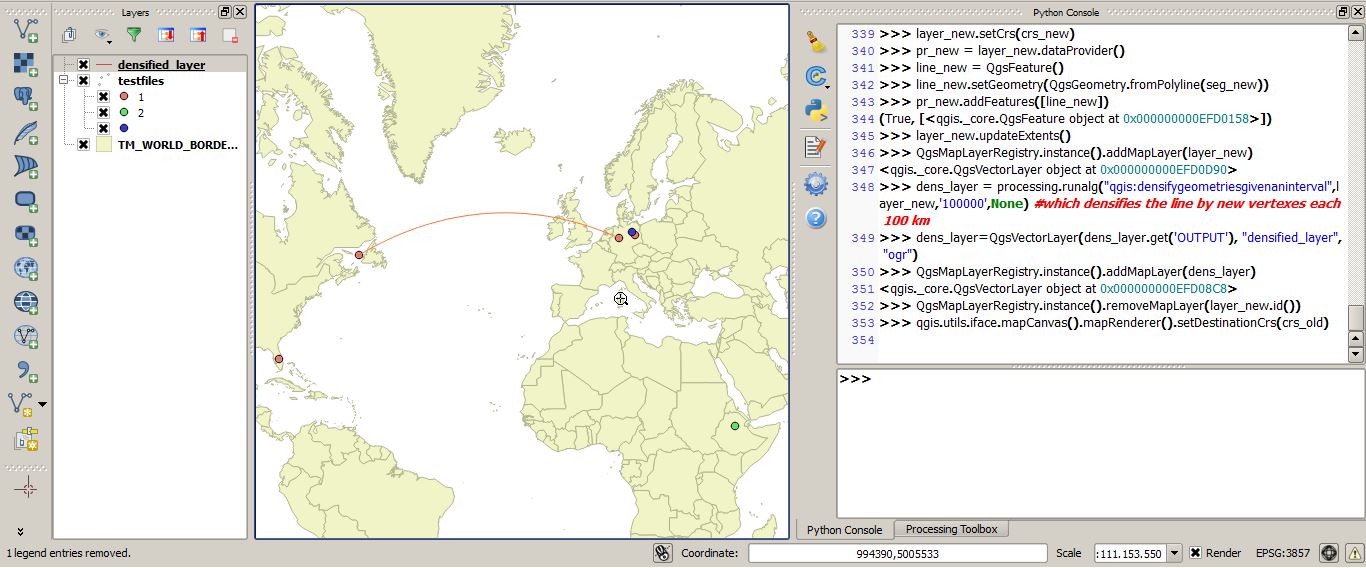“A GISP is a certified geographic information systems (GIS) professional who has met the minimum standards for ethical conduct and professional practice as established by the GIS Certification Institute (GISCI).” (source) But coming from good old Germany I was curious: what is this GISP about? Take a look at this map and you will see my concerns:

Is it a cultural thing or why are most GISPs located in USA? So I asked Justin Cole who works as a Senior GIS Analyst at Monroe County NY to write about being a GISP. Read his answer:
Motivation
I have been in the GIS field now for 10 years, but about 5 years ago I decided to go for my GISP to help with my professional recognition. In many work environments many people do not take you serious without either many years of experience or a professional certification. Since I was relatively fresh out of school, I was thought to be doing just the busy work of maintaining basic layers and processing requests. In actuality, I was already starting many different programs including the training program for the County and many higher-level analysis projects, which many thought that it could not be done using GIS at the time. Another reason for the GISP was as a way to keep growing, professionally.
Becoming a GISP
I started to look into the GISP certification in 2007 when I first heard about it and wanted to see what was needed to apply. The process was, at that time, heavily based on work experience, which I sill did not have. Then in 2008, when many were working on theirs because the grandfathering of the work experience only level was going away, I revisited the certification. I then noticed that much more of the process was based on contributions and education so between all three criteria I might have enough points.
The application process can be a fairly detailed task if you do not keep track all of your activities. I come from an academic family, so I had been keeping track of all my presentations and other projects. This gave me the advantage of only needing to fit the information into the application, instead of spending time gathering. Talking with many others working on their application, the average time was about 2 weeks to get all of the supporting documentation together. One of the big challenges for many was getting a collage transcript to submit. I had mine since I had only a few years prior graduated on hand so, that was not a problem. The biggest challenge to gathering these documents, for me, was to get the confirmation of attendance for the conference I attended. This was a challenge, because not all organizations maintained that information in a digital form. Overall the process took about a week. The surprising thing was I thought that I would come up short in the experience section; I had more than enough points to apply. Renewing my GISP was much easier, because I entered all of my information and supporting documents as I went along. That way, I did not have any running around to do when it came up for renewal.
Outcome
So far there has only been the benefit of having the title and the networking the comes with it. My job still does not officially recognize it as a requirement, so I did not get a promotion from it. But looking for potential new job prospects, to expand myself, I am seeing it more and more as a requirement or a preferred qualification. I am also seeing the GISP requirement for consultants answering request for proposals. Another benefit that I have seen is the networking that the GISP provides. Currently there are over 5,500 GISPs worldwide. At the esri international user conference there is a reception for active GISPs. There is at many different GIS conferences, where the GIS Certification Institute is in attendance, there is other recognition for the members.
Note
I have personally helped the GISP booth at the esri international user conference four years. In doing this, I have seen many people who are looking for ways to show their dedication to the profession in a meaningful way. Some go for more rigorous certifications or degrees, and others are looking more for recognition of their accomplishments. Currently the GISP certification is a fairly good meeting point of these desires. The GISP is also becoming more rigorous, as well. In the future there will also be an exam, to test GIS ability in addition to the current requirements.
Questions
Still, I am curious! Maybe you want to write about your expectations, benefits, motivation to become or became GISP? We would love to share your story.

